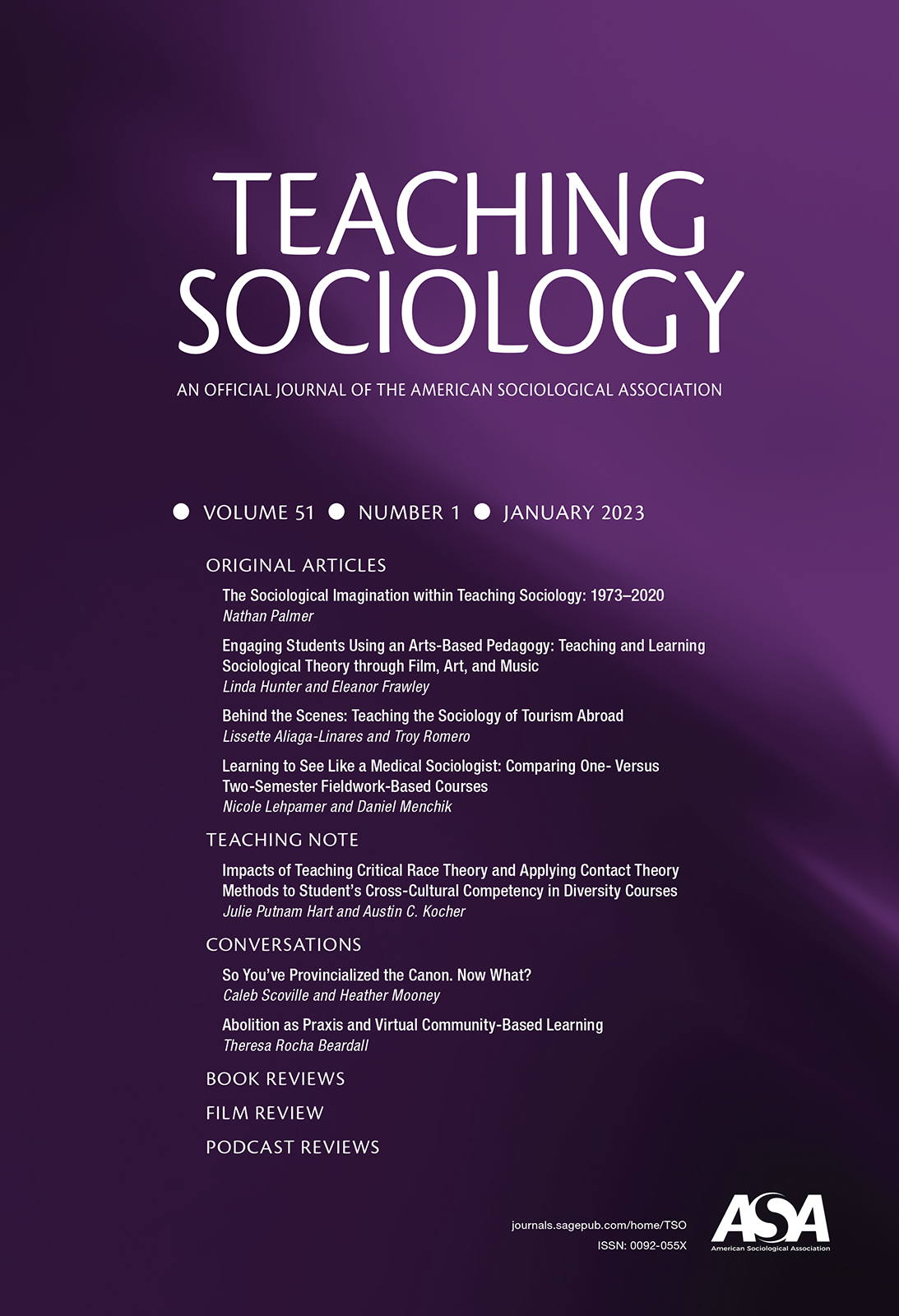
Sociological Theory
Sociology
Submit your manuscript today at https://mc.manuscriptcentral.com/soct.
The American Sociological Association (ASA), founded in 1905, is a non-profit membership association dedicated to advancing sociology as a scientific discipline and profession serving the public good. With 12,000 members, ASA encompasses sociologists who are faculty members at colleges and universities, researchers, practitioners, and students. About 20 percent of the members work in government, business, or non-profit organizations. ASA hosts an annual meeting with more than 6,000 participants and publishes 14 professional journals and magazines.
As the national organization for sociologists, ASA, through its Executive Office, is well positioned to provide a unique set of services to its members and to promote the vitality, visibility, and diversity of the discipline. Working at the national and international levels, ASA aims to articulate policy and implement programs likely to have the broadest possible impact for sociology now and in the future.
 |  |  |  |  |  | |
 |  |  |  |  |  | |
 |  |
Published for the American Sociological Association, this important journal covers the full range of sociological theory - from ethnomethodology to world systems analysis, from commentaries on the classics to the latest cutting-edge ideas, and from re-examinations of neglected theorists to metatheoretical inquiries. Its themes and contributions are interdisciplinary, its orientation pluralistic, its pages open to commentary and debate. Renowned for publishing the best international research and scholarship, Sociological Theory is essential reading for sociologists and social theorists alike.
| Vrushali Patil | University of Maryland, Baltimore County, USA |
| Zine Magubane | Boston College, USA |
| Omar A. Lizardo | University of California-Los Angeles, USA |
| S. L. Crawley | University of South Florida, USA |
| Paola Bacchetta | University of California - Berkeley, USA |
| Claudio Ezequiel Benzecry | Northwestern University, USA |
| Gurminder K. Bhambra | University of Sussex, UK |
| Anders Blok | Department of Food and Resource Economics, University of Copenhagen, Denmark |
| Emmanuel David | University of Colorado Boulder, USA |
| Tara Marie Gonsalves | Columbia University, USA |
| Heba Gowayed | CUNY-Hunter College, USA |
| Ricarda Hammer | University of California-Berkeley, USA |
| Daniel Hirschman | Cornell University, USA |
| Jose Itzigsohn | Brown University, USA |
| Carly Knight | New York University, USA |
| Vanina Leschziner | University of Toronto, Canada |
| Amir B. Marvasti | Pennsylvania State University Altoona, USA |
| Vrinda Marwah | University of South Florida, USA |
| Ali Meghji | University of Cambridge, UK |
| Ghassan Moussawi | University of Illinois at Urbana Champaign, USA |
| Jennifer (Jenni) C. Mueller | Skidmore College, USA |
| Alexandra K. Murphy | University of Michigan-Ann Arbor, USA |
| Michal Pagis | Bar Ilan University, Israel |
| Carla A. Pfeffer | Michigan State University, USA |
| Natalia Ruiz-Junco | Auburn University, USA |
| Louise Seamster | University of Iowa, USA |
| Ioana Sendroiu | University of Hong Kong, Hong Kong |
| Sourabh Singh | Florida State University, USA |
| Anna K.M. Skarpelis | Queens College (CUNY), USA |
| Paige L. Sweet | University of Michigan, Ann Arbor, USA |
| Julie B. Wiest | West Chester University, USA |
| Daniel A. Winchester | Purdue University, USA |
| Hannah Wohl | University of California, Santa Barbara, USA |
| Daniel Silver | University of Toronto, Canada |
Manuscript submission guidelines can be accessed on Sage Journals.